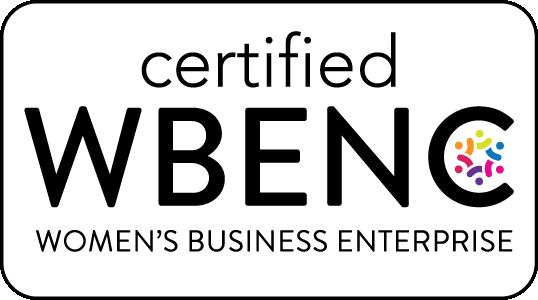Congratulations! You’ve been tapped to lead communications on a large global project. This offers a world of opportunity to prove your communications chops, flex some new muscles, and even advance your career.
These types of projects tend to be fast-paced with a constantly changing roadmap – but there are things you can do to set yourself up for success. O’Keefe Group associates have worked on numerous projects like these spanning everything from launching new enterprise benefits to mergers and acquisitions to corporate spin-offs to information technology. We’ve compiled our top tips below to help you knock your project out of the park.
Always think global
One of the great opportunities with global projects is to work with colleagues from different countries and cultures. So remember to Think Global in everything you do. This means avoiding US-centric references (e.g., referring to American “football” which is soccer in the rest of world) and idiomatic language that could be potentially confusing or offensive in other parts of the world. Even graphics need to be approached through a broader lens. An owl, for example, depicts wisdom in some cultures but symbolizes death, desolation, or bad luck in others.
Think, and act, like a project manager
As the comms lead, you’re likely to be an advisor and shaper of messaging as well as the project manager for communications. Having the right tools to manage all the moving pieces can make your job a lot easier. An Excel spreadsheet or project management software will help you build your schedule and stay on track. For example, if you’re going to send an email communication to all finance employees in Japan, you’ll need to allocate time for drafting, key stakeholder review, legal review, translation, translation quality control, formatting, proofing, and delivery.
Multiply this by dozens of other messages and you begin to understand the need for a good tracking system. Start with your deadline (e.g., All finance employees in Japan need to receive this email on October 1, 2023) and work backwards to capture every step in the process. Then fill in the dates for meeting the key milestones.
Understand roles and responsibilities
Sometimes lines of responsibility get blurred with groups that work closely – communications and change management, for example. It helps to sort this out with your colleagues early in the project to avoid turf wars and duplication of effort.
Also, as the lead communicator, you may need to identify the subject matter expert on a number of different topics to develop messaging. This is often a challenge with large global projects because roles rarely have a detailed job description. So expect to put on your detective hat to track down the people that can provide the information you need.
Be transparent
Transparency is collaboration’s best friend. Here’s an example: One of our global projects involved liaising with project team members in every geographic region, plus a laborious process for creating communications that included enterprise and legal review, translation, translation quality control, formatting, distribution list prep, and other tasks that added days or weeks to the timeline.
As we focused on getting the job done under tight deadlines, we realized that our non-communications colleagues were unaware of certain steps in the process that they weren’t directly involved with. One simple slide that detailed the end-to-end comms process solved the problem. We also shared our communications tracker with the larger team so that deadlines and accountabilities were crystal clear. As a result, other team members came to understand that the process was more time consuming than they imagined – and adjusted their ways of working to meet critical deadlines.
Don’t get lost in translation
On a recent project we supported, nearly 30 languages were involved, and we came away with some important lessons:
• Use Google Translate judiciously: It can be a great tool, but it has limitations and rarely captures the nuances you will need to communicate clearly and accurately in a corporate environment.
• Be sensitive to language variations: There is a difference between European Portuguese and Brazilian Portuguese, for example. If you want to get your audience on board with your message, provide it in the language they speak – not the one that closely resembles it.
• Build in native language review: If you don’t have someone on your comms team who is fluent in a language, a team member from the region should review the translation, because even the best translation services rarely provide flawless work. Regional project managers should identify and liaise with these native language reviewers. Make sure to give them a clear deadline and to build translation quality check into your timeline.
• Communications in other alphabets (Arabic, Chinese, etc.) should be carefully proofread by someone who knows them. It’s hard enough proofing content in another language, but it’s virtually impossible when you don’t recognize the characters.
Ask yourself: email or meeting?
Email is to a project as air is to breathing: You critically need it, but it’s important not to pollute your project with email overload. Ask yourself: Is email the right channel for this? As the communications lead on the team, you can provide a model for getting things done efficiently and effectively.
You’ve probably been on an email thread that goes back and forth without resolution or that is forwarded to multiple people in search of an answer. And online collaboration tools are great – but they’re no substitute for real-time meetings.
A half-hour virtual meeting with key team members from different functions is often the most efficient and effective way to resolve a thorny issue or develop an important message. We know it’s easier to send an email than to navigate the calendars of six busy people and come up with a suitable meeting time – but in our experience, it’s worth the effort!
—————————–
Do you have a large global project coming up? The O’Keefe Group has a wealth of experience providing strategic communications support and tactical solutions to Fortune 500 companies undergoing transformational changes and launching new initiatives. Our experience “in the trenches” has yielded valuable lessons learned and best practices that we can share with you. Contact us today.



